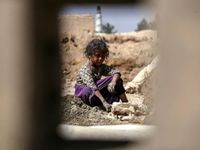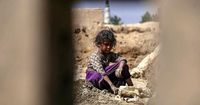The Federal Council of Switzerland has announced a significant reduction in its contributions to United Nations development aid for the year 2025, cutting the budget by approximately CHF 13 million. This decision, made public on April 9, 2025, will see the national government allocate a total of CHF 33.8 million to international development efforts, compared to CHF 47.28 million in 2024.
The bulk of the funds earmarked for 2025 will be directed towards the United Nations Development Program (UNDP), which is engaged in humanitarian efforts across 170 countries. The UNDP focuses on enhancing the resilience of communities and institutions in the face of crises, a mission that has become increasingly critical given the global challenges faced today. Additionally, CHF 2 million will be allocated to the United Nations Capital Development Fund (UNCDF), which aims to ensure that the least developed countries and marginalized groups have access to essential financial services and investment capital.
This reduction in aid is a direct result of budget cuts to international cooperation approved by the Swiss Federal Assembly in December 2024. The Federal Council, Switzerland's executive body, emphasized that the country still seeks to send a "clear signal in favor of long-term international cooperation" through its contributions, despite the reduced amount.
The UNDP's work is vital, particularly in regions facing severe poverty and instability. For instance, the program's recent assessments have highlighted the dire situation in Afghanistan, where millions struggle to meet basic needs. The Swiss government's support for the UNDP has traditionally been a cornerstone of its foreign aid strategy, reflecting a commitment to global development and humanitarian assistance.
Critics of the budget cuts argue that reducing contributions to international aid undermines Switzerland's reputation as a leader in humanitarian efforts. They contend that such reductions could have far-reaching consequences for vulnerable populations reliant on international support. Advocates for increased funding stress the importance of maintaining robust aid levels, particularly in light of ongoing global crises, including climate change, humanitarian disasters, and economic instability.
In response to these criticisms, the Federal Council reiterated its commitment to international cooperation, stating that the adjustments to the budget do not signal a withdrawal from global responsibilities. Instead, officials maintain that the decision reflects a necessary recalibration of priorities within the context of Switzerland's overall financial framework.
This announcement comes at a time when many countries are reassessing their foreign aid commitments amid economic pressures and shifting political landscapes. The global pandemic and subsequent economic fallout have forced nations to balance domestic needs with international obligations, leading to difficult choices regarding funding allocations.
As Switzerland navigates these challenges, the future of its contributions to international development will likely remain a topic of debate among policymakers, NGOs, and the public. The UNDP and UNCDF play crucial roles in fostering sustainable development and economic growth in some of the world's most impoverished areas, making the funding decisions of countries like Switzerland particularly impactful.
In conclusion, while the cuts to Switzerland's contributions to UN development aid may reflect broader economic realities, they also raise important questions about the country’s role in global humanitarian efforts. As the Federal Council works to balance its budget and international commitments, the implications of these decisions will be felt far beyond its borders.


